Affiliate links on Android Authority may earn us a commission. Learn more.
Samsung Galaxy S10 vs LG G8 ThinQ!
February 25, 2019
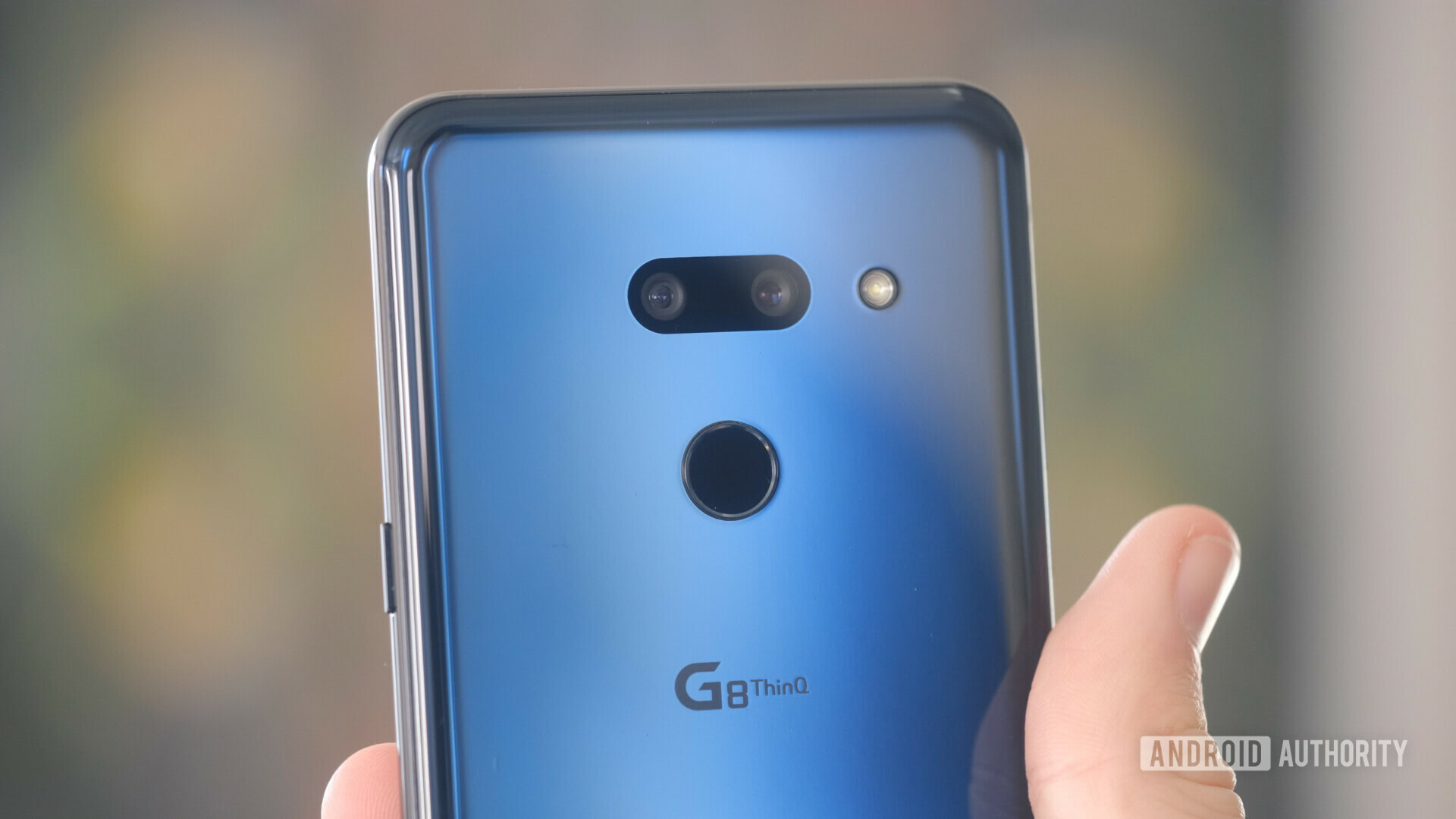
Samsung and LG stand as two monolithic companies in their homeland of South Korea. Both companies have revealed their flagship phones for the first half of 2019, first Samsung with the Galaxy S10 followed by LG with the G8 ThinQ. Though each phone is part of a larger family, these two models go head-to-head in terms of size, price, and features.
The S10 slots into Samsung’s lineup between the smaller S10e and larger S10 Plus. For many, the S10 may be the goldilocks phones that is just right. The G8 is more advanced than LG’s Q-series, but not quite as powerful as LG’s V-series. That means it, too, may serve as the right-fit-for-me device from LG.
In boxing, we’d call this a bout between light heavyweights.
Samsung Galaxy S10 vs LG G8 ThinQ: Specs and features
LG and Samsung took surprisingly similar paths toward the same goal. That means much of what’s packed inside the G8 and S10 will appear to be the same. Not all roads are even.
| LG G8 ThinQ | Samsung Galaxy S10 | |
|---|---|---|
Display | LG G8 ThinQ 6.1-inch OLED 3,120 x 1,440 resolution 564ppi 19.5:9 aspect ratio | Samsung Galaxy S10 6.1-inch AMOLED 3,040 x 1,440 resolution 551ppi 19:9 aspect ratio |
Processor | LG G8 ThinQ 7nm octa-core Snapdragon 855 | Samsung Galaxy S10 8nm octa-core Exynos 9820 7nm octa-core Snapdragon 855 |
RAM | LG G8 ThinQ 6GB | Samsung Galaxy S10 8GB |
Storage | LG G8 ThinQ 128GB | Samsung Galaxy S10 128/512GB |
MicroSD | LG G8 ThinQ Yes, up to 2TB | Samsung Galaxy S10 Yes, up to 512GB |
Battery | LG G8 ThinQ 3,500mAh Non-removable | Samsung Galaxy S10 3,400mAh Non-removable |
Cameras | LG G8 ThinQ Rear: 16MP f/1.9 ultra-wide 12MP f/1.5 standard Front: 8MP f/1.7 standard Z Camera (ToF) | Samsung Galaxy S10 Rear: 16MP f/2.2 ultra-wide 12MP f/1.5 and f/2.4 dual pixel with OIS 12MP OIS telephoto f/2.4 Front: 10MP f/1.9 dual pixel |
Wireless charging | LG G8 ThinQ Fast Wireless Charging 2.0 | Samsung Galaxy S10 Fast Wireless Charging 2.0 Wireless PowerShare |
Water resistance | LG G8 ThinQ IP68 | Samsung Galaxy S10 IP68 |
Security | LG G8 ThinQ Capacitive fingerprint reader, Hand ID vein recognition, 3D face unlock | Samsung Galaxy S10 Embedded Ultrasonic fingerprint scanner, 2D face unlock |
Connectivity | LG G8 ThinQ Wi-Fi Bluetooth 5 3G, LTE 4G | Samsung Galaxy S10 Wi-Fi 6 Bluetooth 5 Cat20 LTE, 7CA, 4x4 MIMO |
SIM | LG G8 ThinQ Nano SIM | Samsung Galaxy S10 Nano SIM |
Software | LG G8 ThinQ Android 9 Pie | Samsung Galaxy S10 Android 9 Pie |
Dimensions and weight | LG G8 ThinQ 151.9 x 71.8 x 8.4mm 167g | Samsung Galaxy S10 149.9 x 70.4 x 7.8mm 157g |
Colors | LG G8 ThinQ red, black, gray | Samsung Galaxy S10 blue, green, black, white, pink |
On a spec-by-spec basis, the G8 and S10 could almost be fraternal twins. They’re so similar, it almost makes you wonder what sort of corporate espionage is going on between LG and Samsung.
The display’s are close, but not quite the same. While both are OLEDs that measure 6.1 inches across the diagonal, the G8 has a notch at the top and the S10 has a punch hole for the camera. LG’s display is 80 pixels taller, hence the 19.5:9 versus 19:9 aspect ratios. Quad HD+ resolution and HDR support is on board for each. It boils down to notch or punch hole.
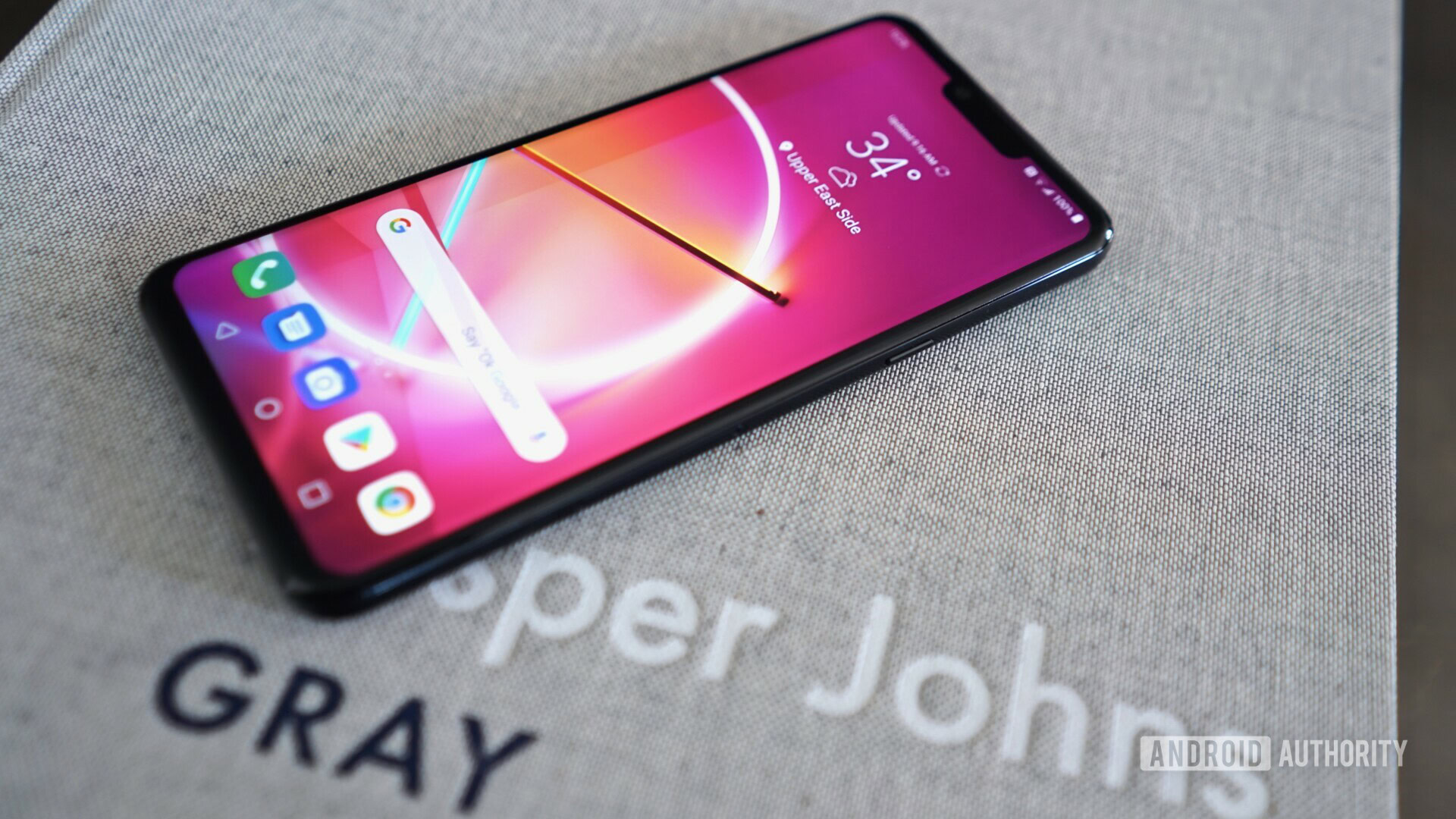
Qualcomm’s top-tier Snapdragon 855 processor provides the number-crunching power within both phones. LG and Samsung haven’t shared the clock speeds for their 855s, but it’s a safe bet they are identical. LG is being less generous with the RAM. The G8 ships with 6GB of RAM standard while the S10 ships with 8GB standard. Same goes for storage. The LG comes only with 128GB of internal storage, while the S10 comes with either 128GB of 512GB. On the flip side, the G8 supports microSD cards up to 2TB, while the S10’s support is limited to 512GB. You give a little, you take a little.
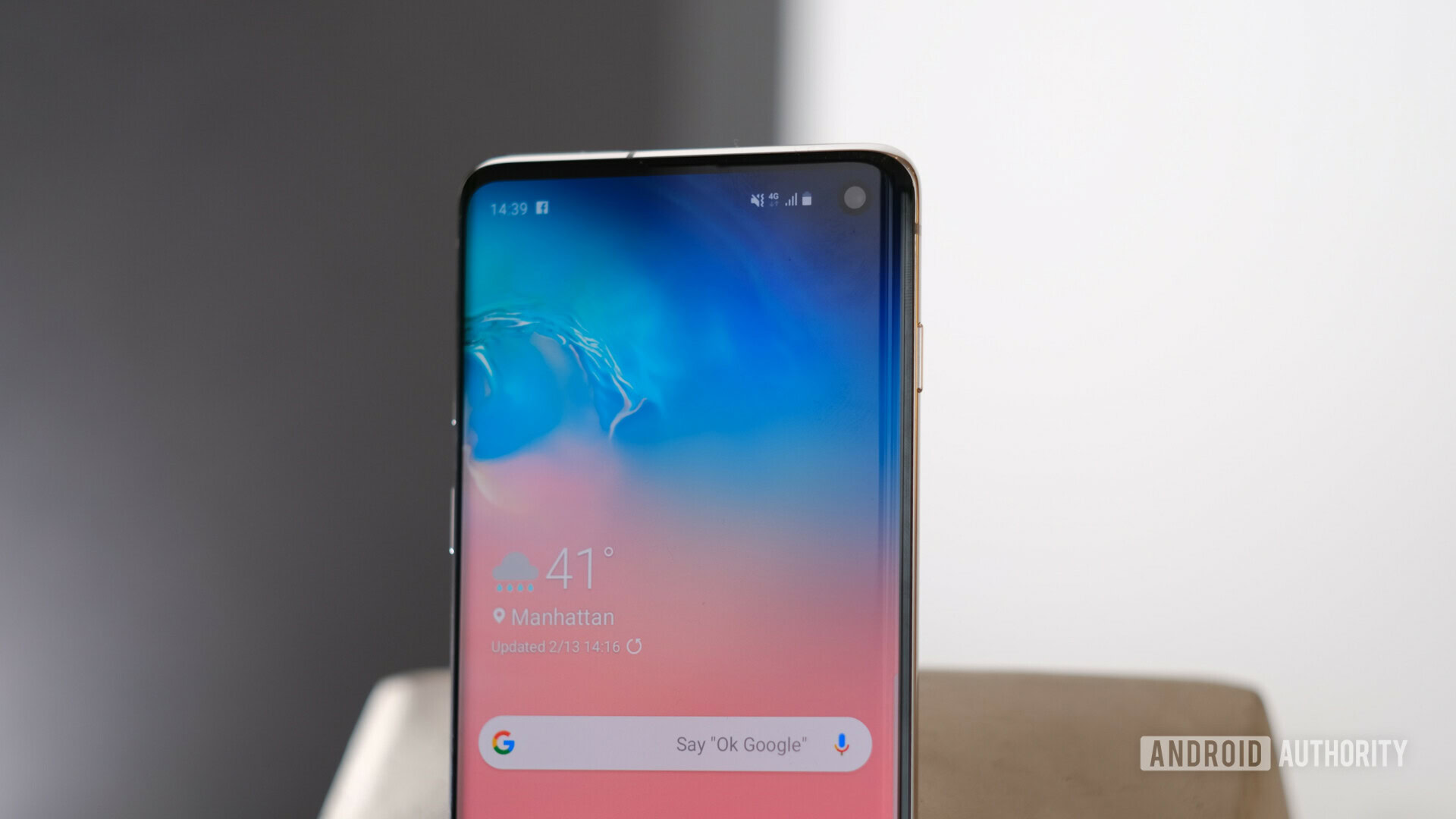
At 3,500mAh and 3,400mAh, respectively, the batteries of the G8 and S10 are essentially the same. Both support rapid wired charging and rapid wireless charging, but only the S10 supports Wireless Power Share — the ability to send power from the phone to other devices such as Samsung’s new Galaxy Buds headphones.
The cameras are another differentiating factor. Where the G8 has a dual-camera configuration on the back, the S10 has a triple camera configuration.
The G8 includes a 16MP wide-angle and 12MP standard-angle setup. It can capture bokeh portraits and night shots, as well as real-time bokeh video. That’s actually quite exciting. It has an 8MP camera on front that works together with a 3D ToF camera to generate portrait selfies.
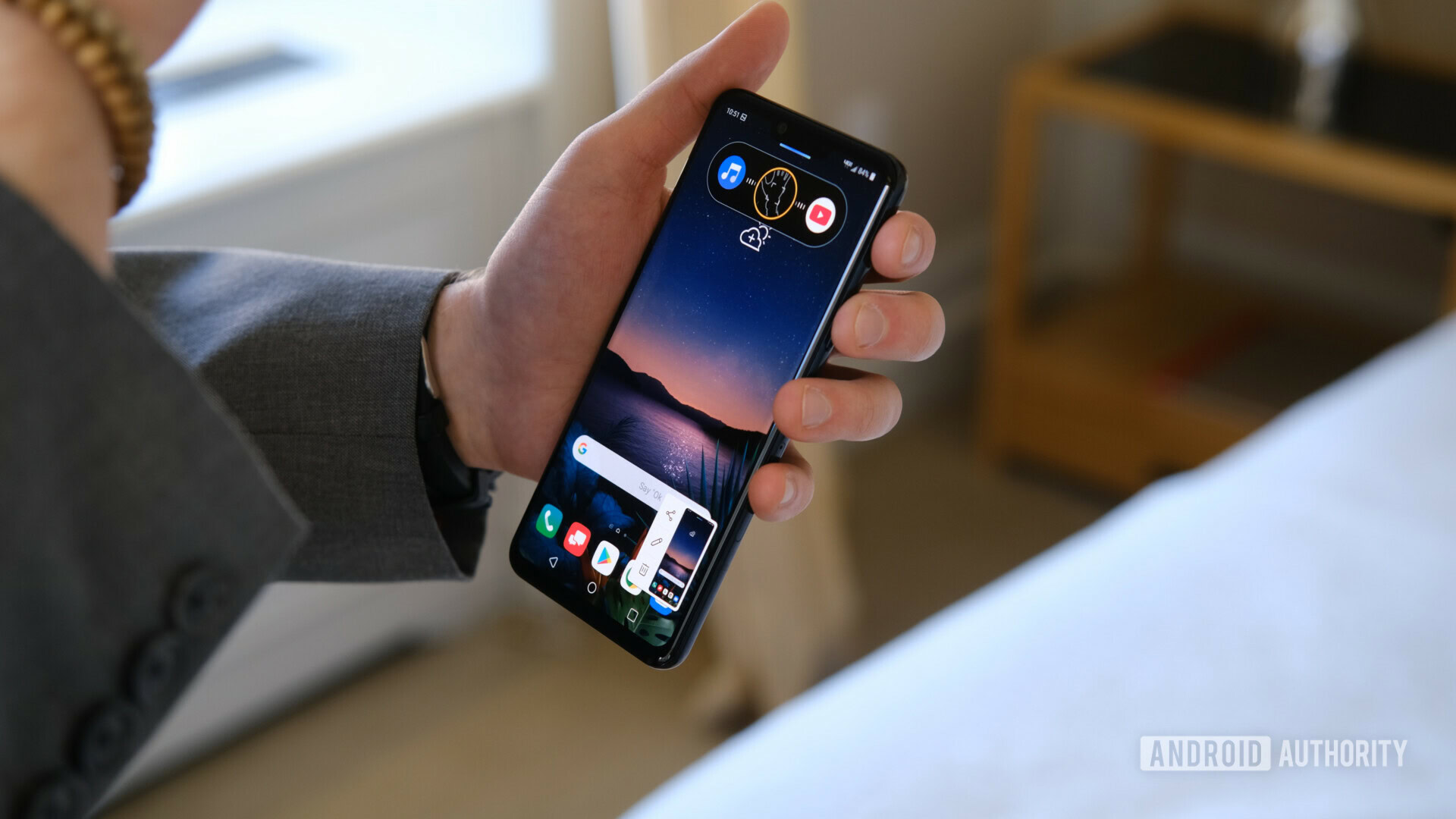
The S10 has a 16MP wide-angle, 12MP standard, and 12MP telephoto setup. It can capture bokeh portraits and night shots, but lacks the real-time bokeh video function. The phone has a 10MP selfie camera and uses software rather than depth information to create bokeh portraits. The G8 has slightly better f-stops on its wide-angle and selfie cameras. That may play a role in low-light shooting.
On the security front, the phones each offer something special. The G8 includes 3D facial recognition and Hand ID — both thanks to the ToF camera. The phone generate 3D images of your face that are used to secure the phone in a way that cannot be fooled by 2D photos. The G8 can also see the hemoglobin in your blood to create vein recognition. That’s a unique one. The G8 includes a regular fingerprint reader on the rear. The S10 puts the fingerprint reader under the display glass. It’s an ultrasonic reader that sees 3D view of your finger, rather than simple take a picture of the counters.
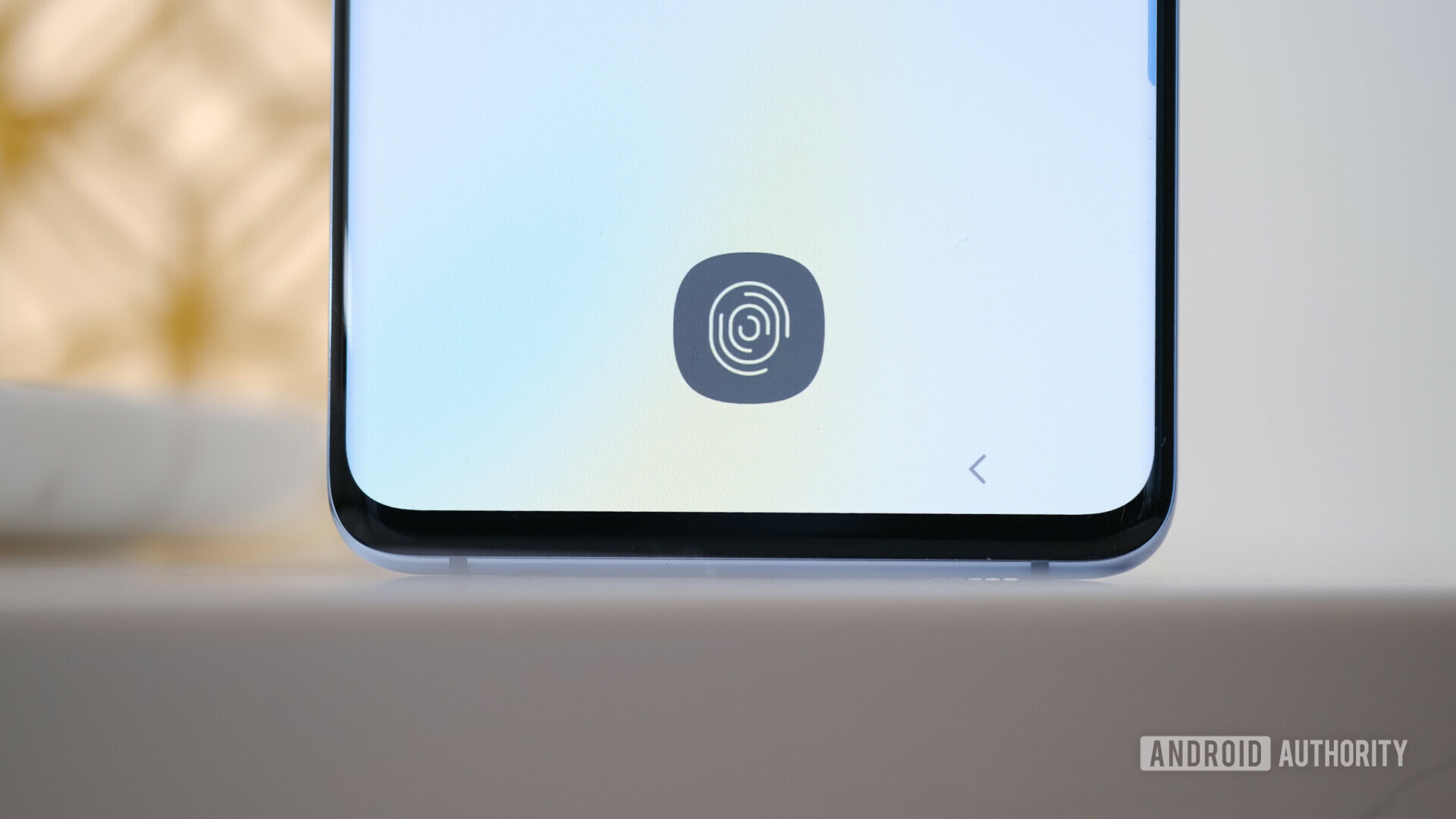
As for odds and ends, the G8 and S10 come up fairly even. You’ll find 3.5mm headphone jacks, USB-C, Wi-Fi, Bluetooth 5, NFC, and GPS/GLONASS on both devices. The G8 and S10 each supports fast LTE 4G, and IP68 water resistance is available from LG and Samsung,
Details in the design
With specs that are so similar, exactly what helps these two phones stand apart? Not overmuch.
The G8 has a Gorilla Glass front and back with an aluminum frame in the middle. So does the S10. LG anodized its aluminum frame and gave it a glossy coat, while Samsung polished its aluminum and left it shiny. The G8 is slightly bigger at 151.9 x 71.8 x 8.4mm (versus the S10’s 149.9 x 70.4 x 7.8mm) and heavier at 167g (versus the S10’s 157g).
As noted above, the G8’s screen has a notch and the S10’s has a hole punch. This is probably the most obvious visual difference between the two — as long as the screens are on.
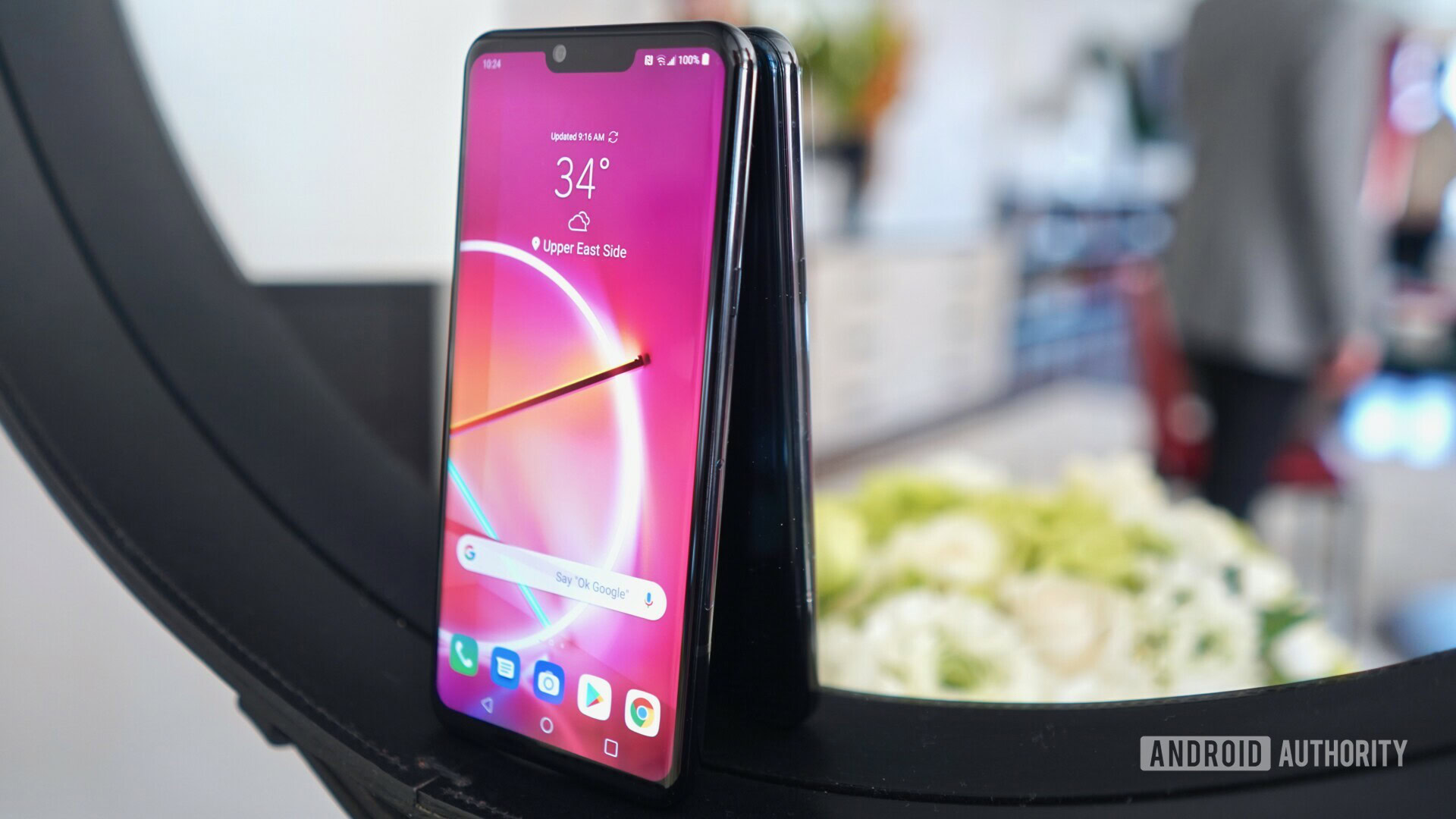
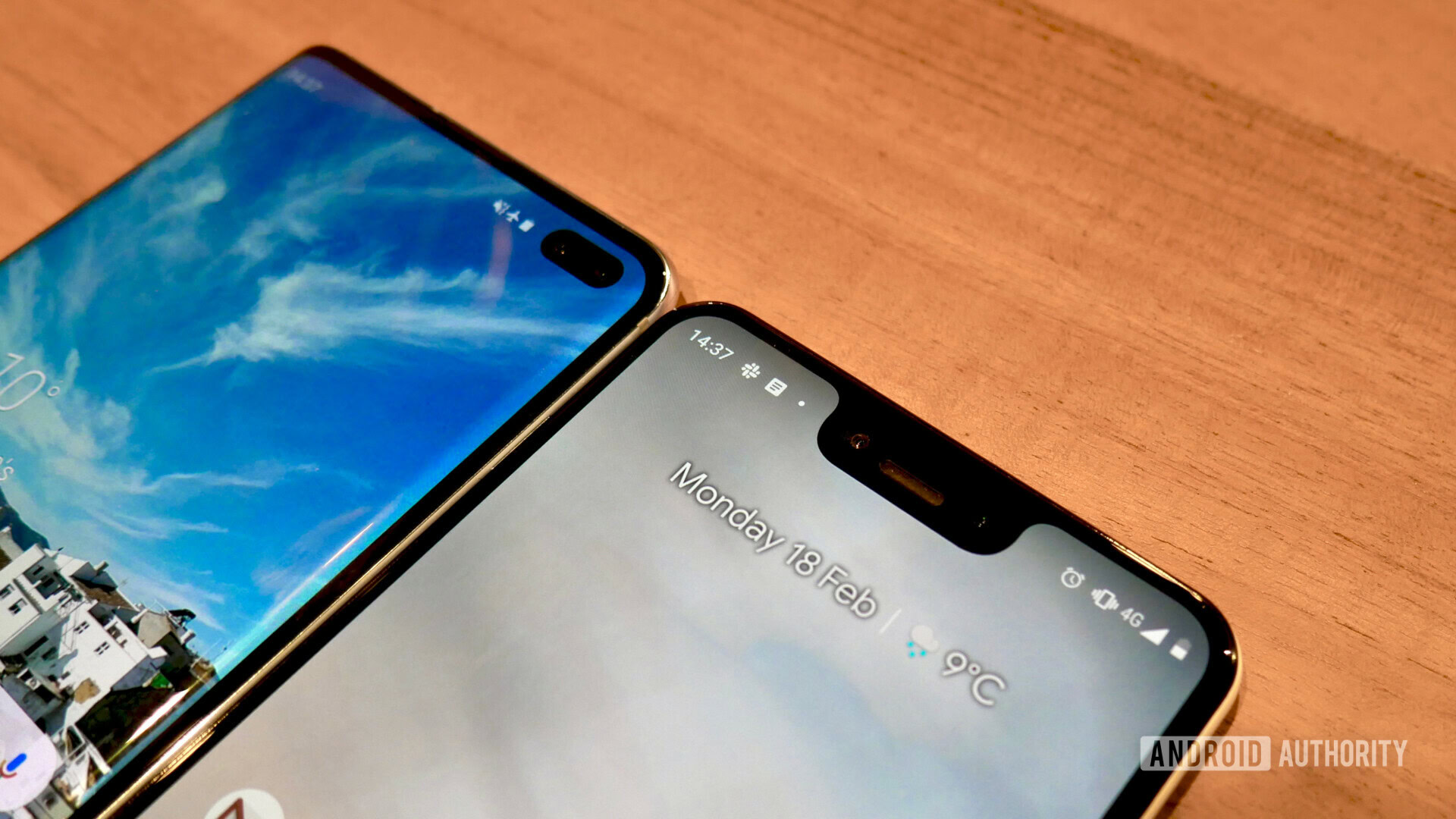
Even the button configuration is the same. On both phones, the power button is on the right, while the volume buttons and assistant key are on the left. Of course, the G8’s assistant key opens Google Assistant, while the S10’s key opens Bixby (unless you remap the button.)
LG plans to sell the G8 ThinQ in black, red, and gray. The Galaxy S10 will come in black, white, blue, green, and pink.
Pie in the sky
Google’s Android 9 Pie serves as the core platform for the G8 and the S10. LG and Samsung each have a skin for Android, though LG’s is less in your face.
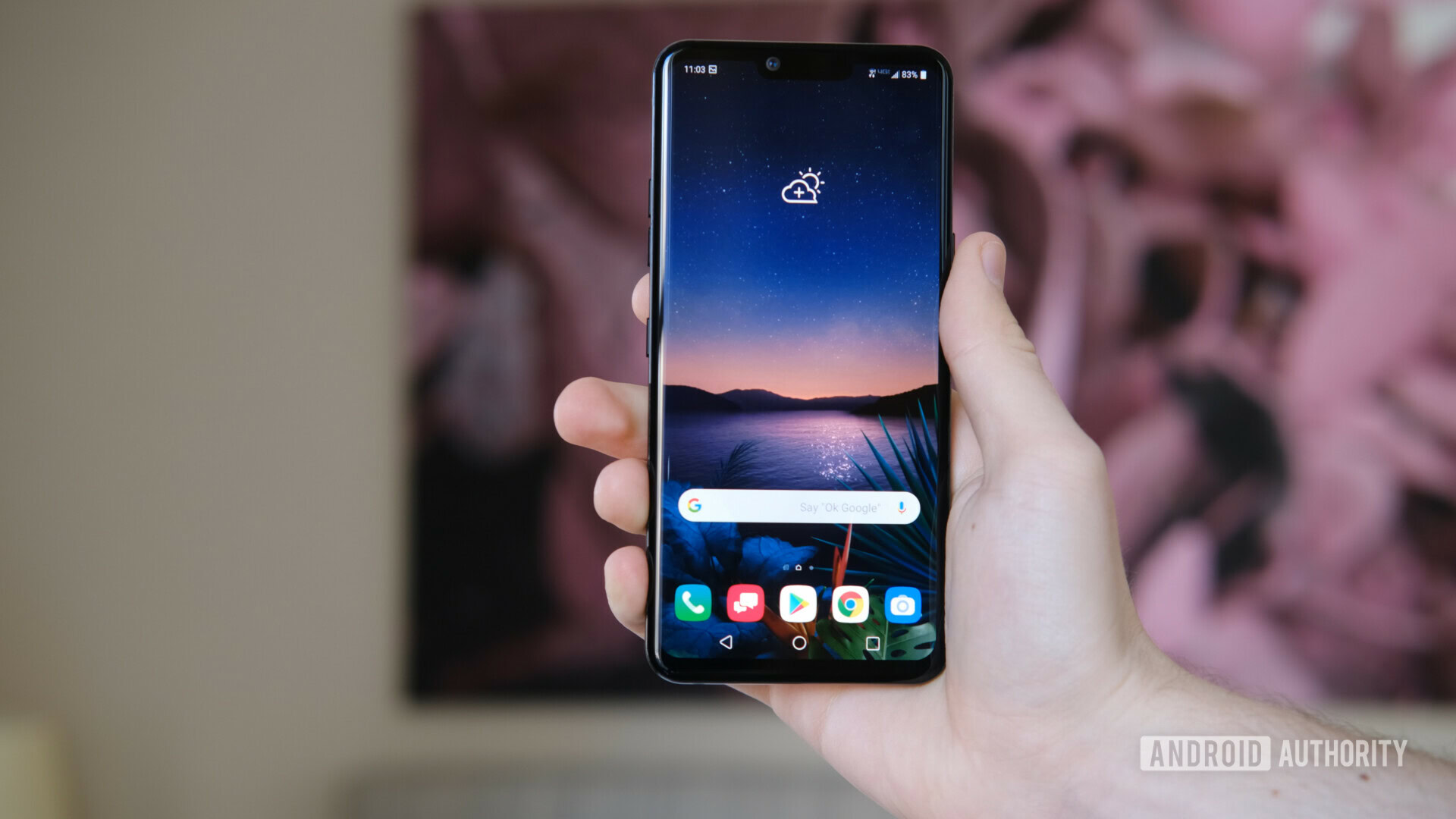
LG offers a clean look to its phones and provides a wealth of options when it comes to customizing the basic experience of the G8. For the moment, it’s hard to dive into specifics, as LG hasn’t provided too much detail about the G8’s software.
The S10 ships with Samsung’s brand new One UI. Initial impressions of One UI show that Samsung has learned to tone things down a bit while offering more functionality. After our brief time testing out One UI, we can say we like what we see.
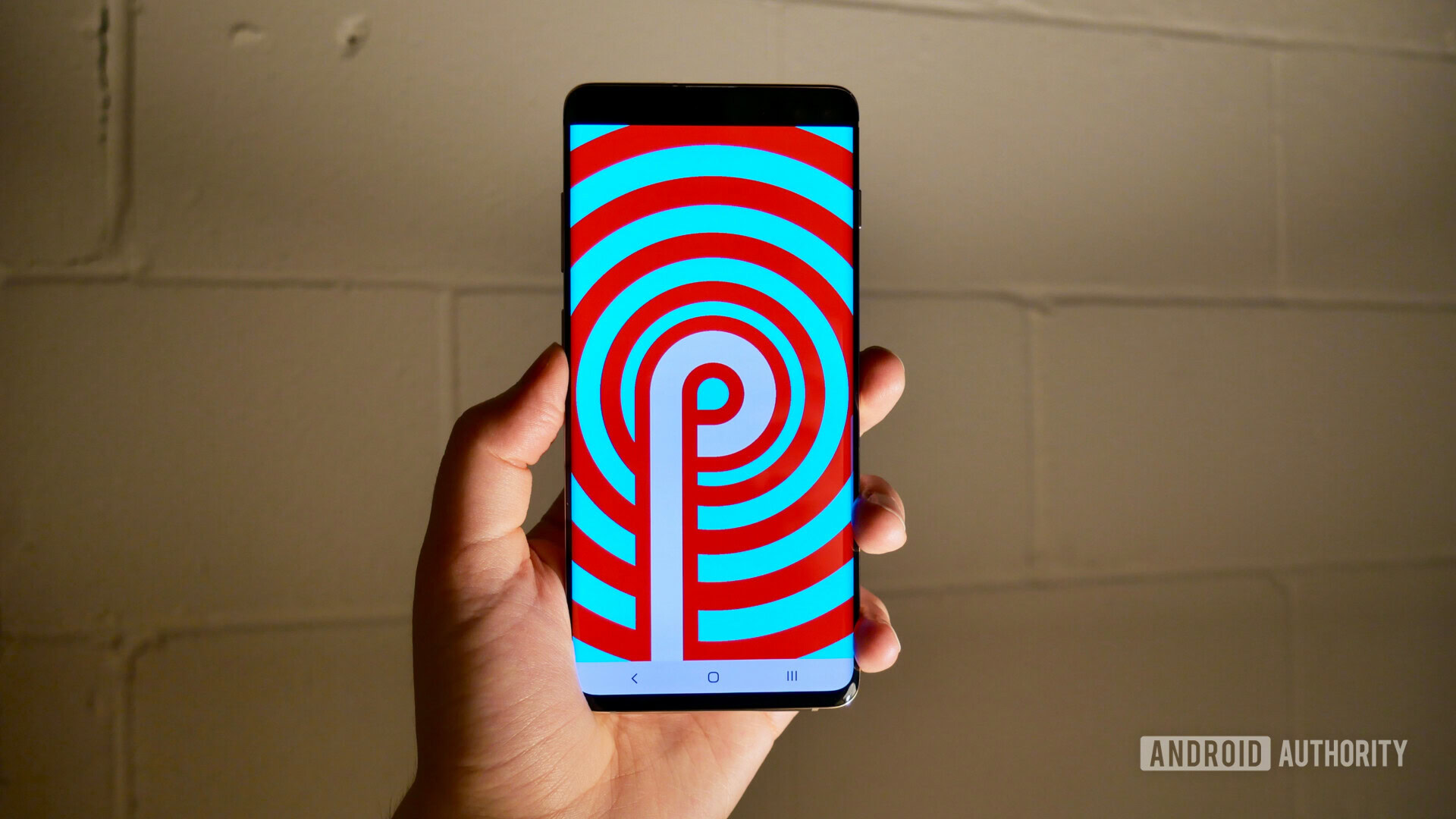
Is one better than the other? I’d say this comes down to a matter of taste.
Samsung Galaxy S10 vs LG G8 ThinQ: Price and which should you buy?
The LG G8 ThinQ launched with a price tag of $820. However, the phone is frequently on sale, currently going for as low as $650. The S10 is more expensive, retailing for $899 (8GB/128GB model) and $1,149 (8GB/512GB) model.
It’s incredible, really, how neck-and-neck the G8 and S10 are. You can’t judge them on a spec-for-spec basis, as they’re nearly identical. The G8 has a notch while the S10 has a hole punch; the G8 has a bigger battery while the S10 has Power Share; the G8 has two front cameras where the S10 has one, and the G8 has two rear cameras where the S10 has three.
After testing out both phones, we’d say the Galaxy S10 is the better device overall. However, the LG G8 is still a great option for a lot of people, especially because its cheaper. It also has a few advantages over its rival, including an extra camera up front and a few other things mentioned in this post. Therefore, which device to go with depends on the price as well as the features you value more.
Which do you have your eye on? Let us know in the comments!
Thank you for being part of our community. Read our Comment Policy before posting.